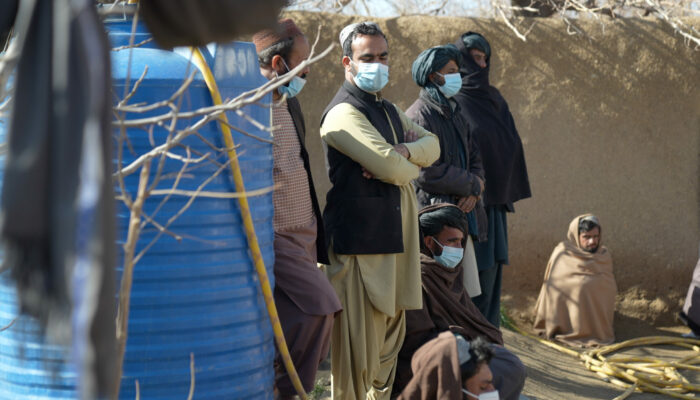Paul van de Berg visits Afghanistan

Paul van de Berg – political advisor, Cordaid – visited Afghanistan last week. He shares his experiences and compares it with his last visit in 2019.
What did you see while visiting Afghanistan?
During my visit this week, I have only been to Kabul. My last visit before that was in 2019. What struck me was that it’s a lot quieter now in the capital. There is much less traffic, and fewer people walking the streets. That has everything to do with the fact that a huge number of people have left Kabul and fled to neighboring countries or evacuated to Europe or North America. But it also certainly has to do with measures taken by the de facto authorities to curtail women’s participation in society. That said, it was certainly not the case that there were no women on the streets. What is further striking is the very limited presence of the international community. You hardly see UN or EU cars or expats in the streets or on flights to and from Dubai.
How do you think the humanitarian aid sector can best contribute to alleviating the current distress?
Afghanistan is currently going through a huge downturn due to the confluence of humanitarian needs (more than half of the population is in need of emergency aid) and an economic crisis, in part because the international community is funneling far fewer resources into the country, but also because of sanctions and asset freezes. UNOCHA’s humanitarian response plan is currently 41.8% funded, leaving a funding gap of $2.6 billion.
The main need, therefore, is for the international community to allocate additional resources to alleviate the needs in the country.
But on top of that, initiatives will have to be taken to stop the economic downturn. The Dutch government recently stated as much in a letter to parliament. Being totally dependent on international emergency aid is a dead end for Afghanistan, so ways will have to be found to get the economy going again, for example by supporting Afghan businesses so that Afghans can get back to work.
Perhaps a more difficult question: what is the effect of the international boycott of the Taliban? What have you heard about this and what do you see from this?
The economy has collapsed. Afghanistan was largely dependent on international funding (ODA), combined with the resources generated by the presence of the international community in the country. As a result, it was a war economy. After August 15, 2021, when NATO and embassies left the country, that economy thundered. U.S. President Biden’s action to punish Afghanistan by giving 50% ($7 billion) of Afghan bank deposits to relatives of the 9/11 attacks only made the situation worse. There really will have to be found, as mentioned, ways – beyond the Taliban – to stop the deep economic crisis. Because of the lack of jobs, many young people are now considering leaving the country and seeking refuge elsewhere. That combined with the brain drain that started after August 15, 2021, would only make the situation more dramatic.
Read more about our Afghanistan series here
